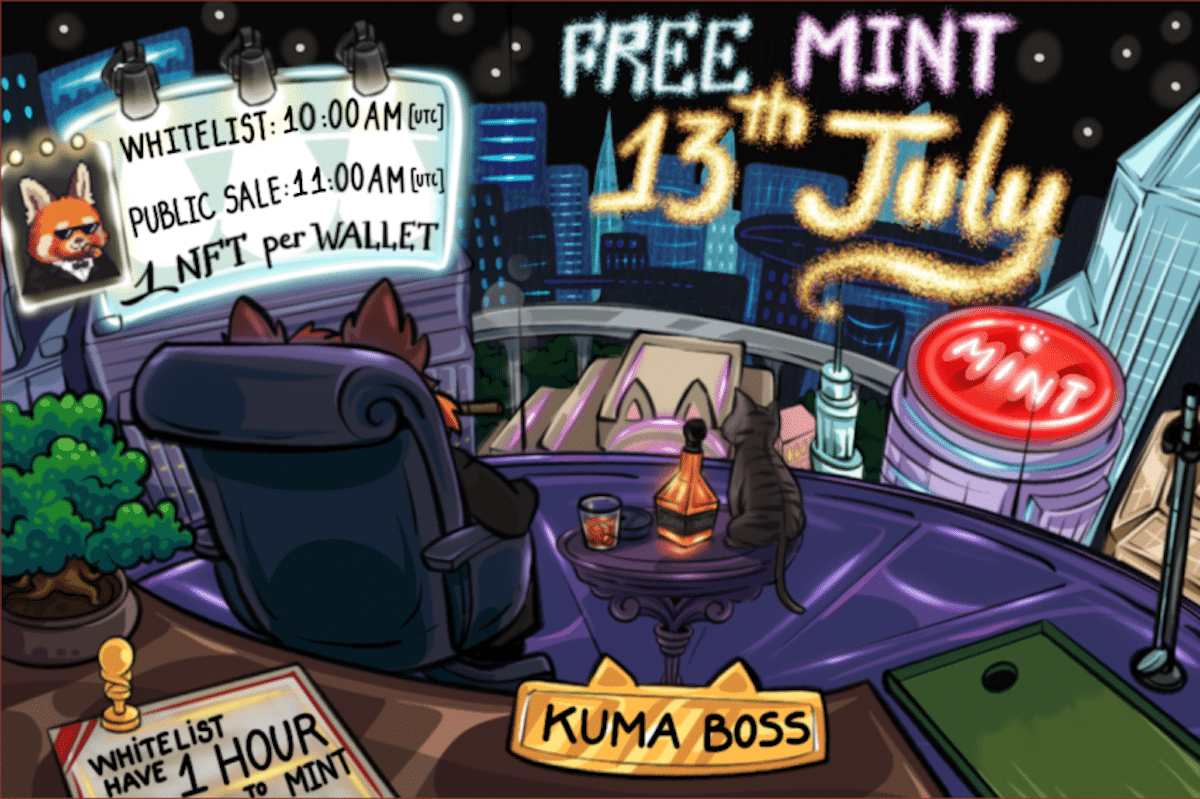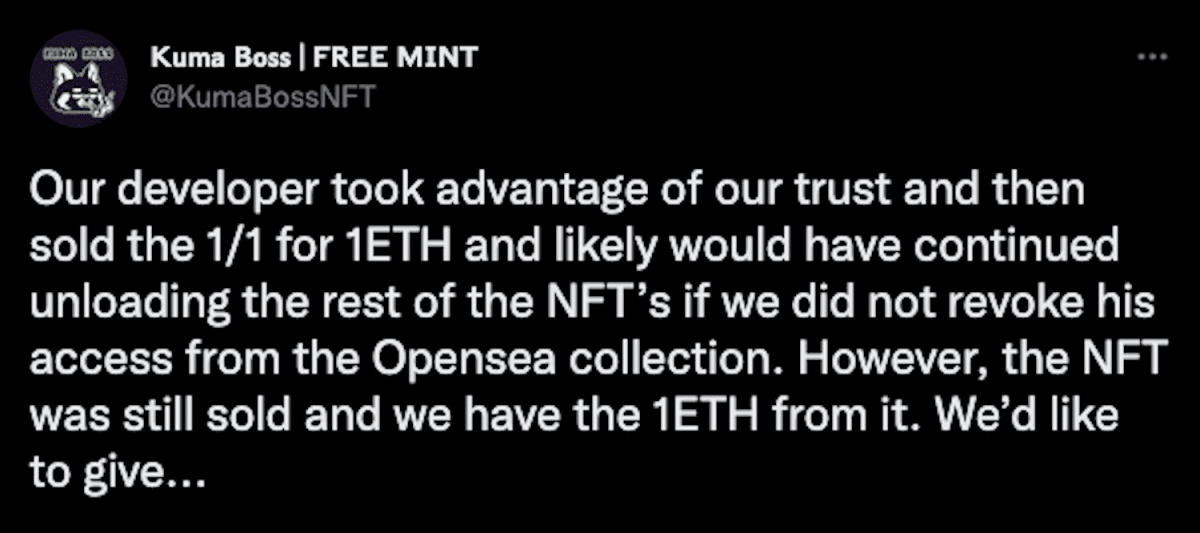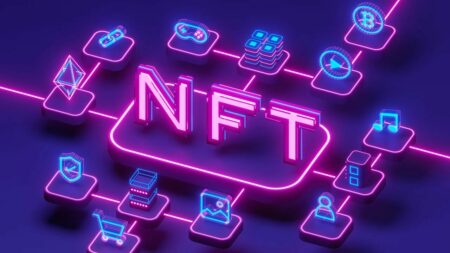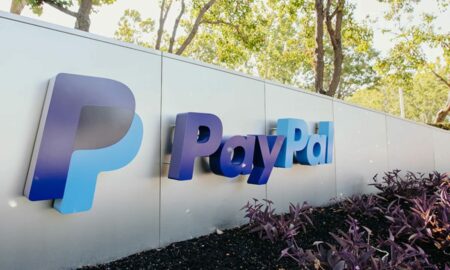A recent free-to-mint NFT project called Kuma Boss had to take to Twitter after some embarrassing mint day mistakes. The project dealt not just with smart contract issues, but also a devious project developer.

What is the Kuma Boss NFT collection?
Kuma Boss NFT is a collection of 5,555 pixelized bears (Kuma is Japanese for “bear”). Basically these generative NFTs fit into a wider lore centering around Kuma Bosses, each of which oversees its own shadowy organization. In addition, buyers were able to mint Kuma Boss NFTs on July 13th for just the cost of gas. Perhaps unsurprisingly, the collection sold out.
Evidently, Kuma Boss looked to take advantage of the current hype around free NFT mints. As many will know, free NFT mints have surged in popularity during the current bear market. Not to mention the runaway success of Goblintown. Interestingly however, Kuma Boss did go a slightly different route than many popular free mints of late. That is to say that it actually has a website, as well as lore.

Smart contract issues affected the Kuma Boss NFT mint
The Kuma Boss team took to Twitter shortly after its mint with a thread outlining everything that went wrong. And the first issue at hand, was the issue with the Kuma Boss smart contract.
In short, the team launched the smart contract on OpenSea incorrectly. The team had labeled the contract as “testingggg”. As one tweet from the thread explained,
“this was the name of the testnet collection and we had changed the name of the collection on testnets.opensea.io to “KumaBoss” and updated all relevant details. We assumed this would carry over when we launched our contract on mainnet, we were wrong.”
Unfortunately, the team’s response just opened up a door to more issues.
“Once we launched, we saw the name on Opensea and our brains went into a state of panic so we thought the best plan of action was to pause the mint and put out a tweet stating that we will be launching a new contract and everyone who minted will be airdropped a free NFT.
We quickly realized the flaw in this being that those who bought off secondary would be left without compensation so we deleted the tweet. ”
The team eventually consulted with an experienced developer who advised them to simply keep the contract and update the details on OpenSea. But because of the tweet, there were minters who sold their NFTs thinking that there would be a new contract, thus ending up with nothing.

Team’s dev attempts rare NFTs from the team allotment
As if the smart contract blunder wasn’t bad enough, the Kuma Boss NFT team say it “saw a lot of FUD”. This came as community members started accusing the team of buying all the 1/1s in the collection.
As it turns out, the Kuma Boss NFT dev did in fact sell a 1/1 from the 200 NFTs that Kuma Boss held back for its team. Kuma Boss maintains that the team pulled one of the three 1/1s in the collection “by pure luck”. What’s more, it revoked the dev’s access to the OpenSea collection before the dev could unload any more NFTs.
All in all, this mint was a terrible look for Kuma Boss, which it acknowledges in its Twitter thread. To that end, the thread ends effectively promising to regain the trust of the community.
So will it be able to regain that trust? To be fair, perhaps it was a series of honest mistakes as the team claimed. On the other hand, Kuma Boss NFT might not have had much leeway to begin with. After all, there are some other potential red flags around the project.
For one thing, it has an anonymous team. Not to mention that its Twitter account that went active in June 2022, yet it has 200K followers. To clarify, that’s usually a sign of a large number of fake followers.
All investment/financial opinions expressed by NFTevening.com are not recommendations.
This article is educational material.
As always, make your own research prior to making any kind of investment.








